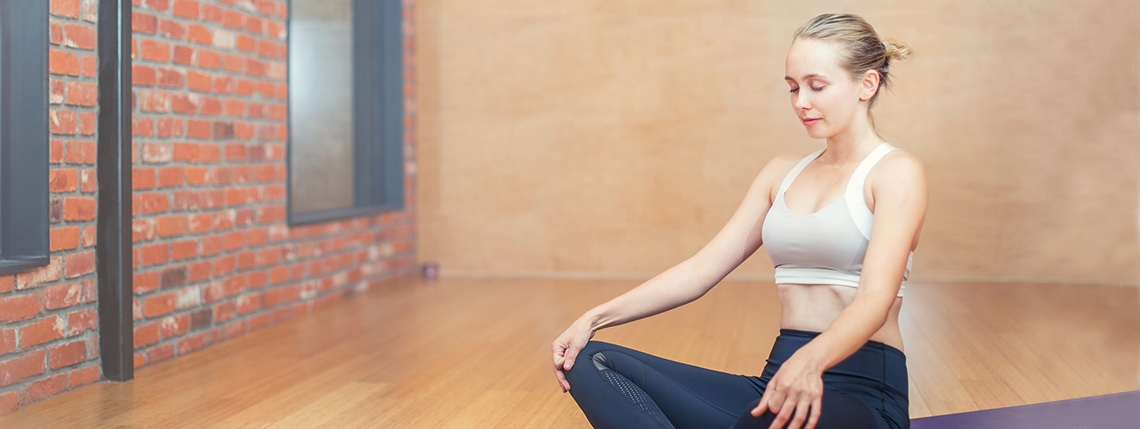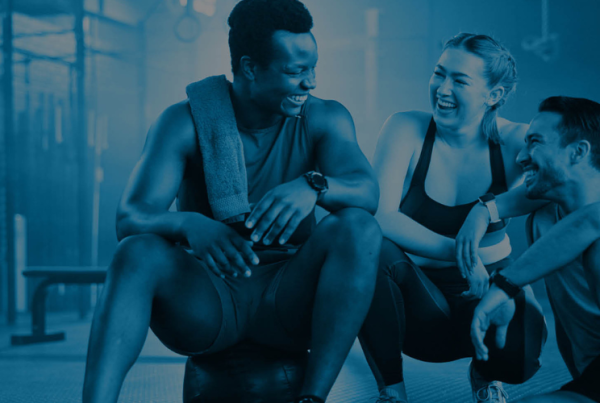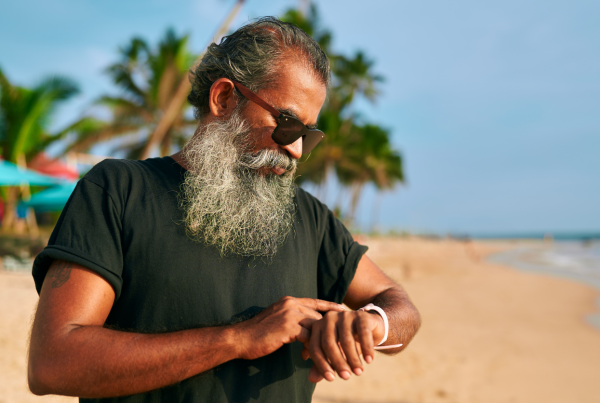Simply paying attention to your breath could really shift your mood during this challenging time. Dr Arianne Missimer, founder of The Movement Paradigm, shows you how.
Everyone is experiencing a profound amount of stress during this challenging time of COVID-19. Have you ever wondered how you can handle your reactions to life’s challenges and stressors like this? Or maybe you’ve wondered how you can become more resilient? Did you know that diaphragmatic breathing can be a powerful tool that you can use to shift the state of your nervous system to help you feel more mindful, grounded and joyful during this time – and, more importantly, during your life?
Breathing is our first motor programme. It’s also the most essential and foundational motor programme we have. Unfortunately, we may begin to lose optimal function of this pattern early in life. Did you know that just one triggering event in your life can change your breathing pattern?
We breathe 20 to 25,000 times a day. So how you breathe matters. Let’s test it. Take a big inhale. Do your neck and shoulders rise? Or does your abdomen expand? The preferable pattern is a diaphragmatic pattern, which is when the diaphragm, our main muscle of inspiration, descends and creates 360 degrees of pressure in the abdomen (i.e., it expands) on the inhale and our ribs go down and belly button in on the exhale, like a corset.
When you’re stressed, did you ever realise that your breathing rate increases? Perhaps you feel more tension in your neck and shoulders?
Let’s dive a little deeper into the autonomic nervous system and talk about vagus nerve stimulation. The vagus nerve, referred to as the wandering nerve in Latin, is one of the longest nerves, a cranial nerve that originates in the brainstem and innervates the muscles of the throat, circulation, respiration, digestion and elimination. Pretty amazing, wouldn’t you say?
Dr Stephen Porges introduced the Polyvagal Theory, where he defined three states of the nervous system: ventral vagal state (socially engaged), dorsal vagal state (freeze) and our fight/flight state. Our socially engaged state (or state of safety) means we are joyful, present, grounded and living in the moment. When we are in this grounded state, we are breathing diaphragmatically.
Our fight or flight state is consistent with worry, fear, anxiety or frustration, anger or even rage. We need to get away from danger because our nervous system is perceiving a threat. This is our survival mechanism.
Lastly, there is the dorsal vagal state: a freeze state. We are immobile, shut down and often have a sense of hopelessness. It’s difficult to be fully engaged with the world.
Regardless of your state, you can shift it through vagus nerve stimulation. Breathwork is one of the simplest and most powerful ways to do that – it’s your superpower. Other common ways include cold showers, meditation, probiotics, humming, gargling, chanting and exercise.
Ten minutes a day is recommended. Before bed and in the morning are great opportunities. Also set your alarm and take three breaths every hour. In as little as three slow, deep, nasal, rhythmical breaths, we can create a relaxation response. It may take 10 breaths to get to three good diaphragmatic breaths. Try making it a habit.
When you feel anxious or stressed, try this technique. Breathe in for as long as feels comfortable (two to four seconds). Hold for as long as feels comfortable. Exhale for as long as you can. The longer the exhale, the greater the relaxation response, improvement in vagal tone and lowering of heart rate. Repeat three times or more. How do you feel now? Please note that if you have experienced trauma, the breath may not be a safe place for you. That is OK – perhaps try to find an anchor that brings you safety.
If you want to be joyful and live life to the fullest, breathwork and vagus nerve stimulation are great to integrate on a regular basis. Because of modern society, pressure and expectations, social media, phones and technology – and now COVID-19 – it is very important that we take time for self-care and this is one of the core ways to do just that. Just breathe.
Author bio
Dr Arianne Missimer is a doctor of physical therapy, registered dietitian, and yoga and mindfulness educator. She is the founder and owner of the Movement Paradigm, an integrative health centre, and specialises in functional medicine to help you lead your best life through powerful dietary interventions, movement, sleep and mindset reframing techniques to empower you to heal your body, alleviate inflammation and live with vitality.
themovementparadigm.com







